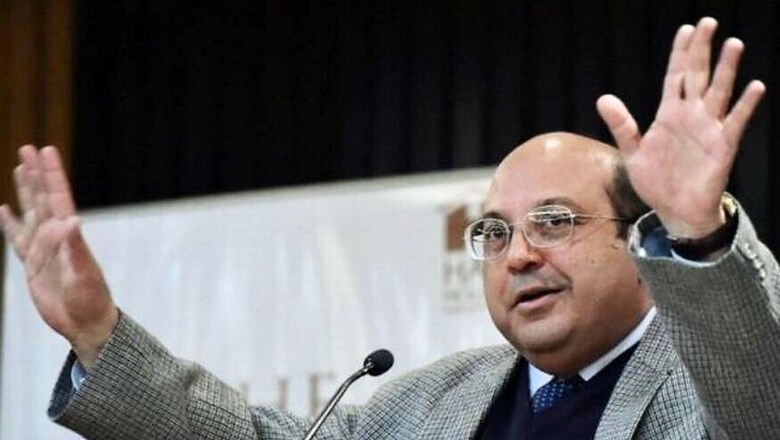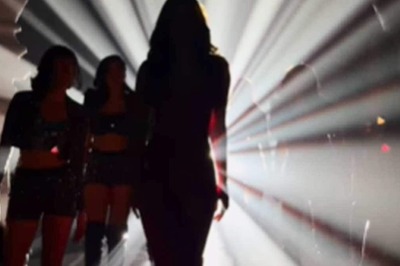
views
New Delhi: "Let every person remember that the 'holy book' is the Constitution of India", Justice R F Nariman said on Thursday in a minority verdict in the Sabrimala case.
The observations were made by Justice Nariman, writing for himself and Justice D Y Chandrachud.
"Bona fide criticism of a judgment, albeit of the highest court of the land, is certainly permissible, but thwarting, or encouraging persons to thwart, the directions or orders of the highest court cannot be countenanced in our Constitutional scheme of things. After all, in India's tryst with destiny, we have chosen to be wedded to the rule of law as laid down by the Constitution of India.
"Let every person remember that the 'holy book' is the Constitution of India, and it is with this book in hand that the citizens of India march together as a nation, so that they may move forward in all spheres of human endeavour to achieve the great goals set out by this 'Magna Carta' or Great Charter of India," Justice Nariman said in the minority.
The minority judgment said that the Constitution places a non-negotiable obligation on all authorities to enforce the judgments of the Supreme Court.
"The duty to do so arises because it is necessary to preserve the rule of law. If those whose duty it is to comply were to have a discretion on whether or not to abide by a decision of the court, the rule of law would be set at naught," it said.
Last year, after the SC allowed the entry of women of menstrual age in the temple, several women who tried to enter the shrine were either sent back or, in some cases, even assaulted.
The court in the minority judgement said that the judicial remedies are provided to stakeholders before a judgment is pronounced and even thereafter.
"When the process is complete and a decision is pronounced, it is the decision of the Supreme Court and binds everyone. Compliance is not a matter of option. If it were to be so, the authority of the court could be diluted at the option of those who are bound to comply with its verdicts," it said.
Justice R F Nariman, who wrote on behalf of himself and Justice D Y Chandrachud, also said that busybodies, religious fanatics, cranks and persons with vested interests will be turned down by the apex court at the threshold itself.
"The issue of locus-standi to file a public-interest litigation was reargued by some of the review petitioners. Indu Malhotra, in her dissenting judgment, has held that to entertain a public-interest litigation at the behest of persons who are not worshippers at Sabarimala temple would open the floodgates of petitions to be filed questioning the validity of religious beliefs and practices followed by other religious sects.
"We have pointed out in this judgment that the majority judgment cannot be used to undermine the religious rights of others, including, in particular, religious minorities. Besides, busybodies, religious fanatics, cranks and persons with vested interests will be turned down by the Court at the threshold itself... The fear expressed by the learned dissenting judge is therefore quite unfounded," Justice Nariman said.
He further stressed on the earlier judgement where he had pointed out that the case raised grave issues which relate to gender bias on account of a physiological or biological function which is common to all women.
"It is for this reason that a bona-fide public-interest litigation was entertained by the majority judgment, having regard to women's rights, in the context of women worshippers as a class, being excluded on account of such physiological/biological functions for the entirety of the period during which a woman enters puberty until menopause sets in," he said.
In a 3:2 majority verdict, the Supreme Court Thursday referred to a larger 7-judge bench the pleas seeking review of its historic 2018 judgement allowing women and girls of all ages to enter Kerala's Sabarimala temple, set to open on November 17, along with other contentious issues of alleged discrimination against Muslim and Parsi women.
As the majority verdict, penned by Chief Justice Ranjan Gogoi, kept the review pleas pending for a 7-judge bench and did not stay its September 28, 2018 majority judgement, girls and women of all age groups will be entitled to undertake the pilgrimage to the shrine.
The CJI, who wrote on behalf of himself and Justices A M Khanwilkar and Indu Malhotra, said the debate about the constitutional validity of religious practices like bar on entry of women and girls into a place of worship was not limited to the Sabarimala temple.




















Comments
0 comment